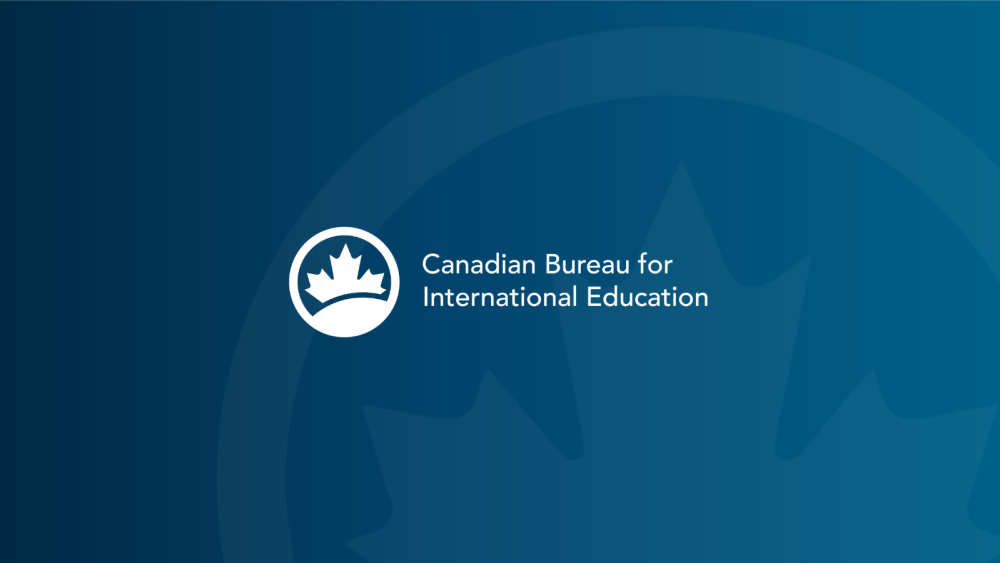The year 2024 has been an unprecedented one for Canada’s international education sector. Policy changes to Canada’s International Student Program (ISP) which began in Fall 2023 – not least the cap on international student enrolment, announced in January 2024 – have already had an enormous impact on enrolment of international students in our institutions.
Although CBIE is cognizant of the broader Canadian policy context that is focused on reducing the number of Temporary Residents; this latest round of changes to the International Student Program, announced by Minister Miller on September 18, 2024, delivers another blow to our sector. The increase in the cap, coupled with the restrictions to the Post Graduate Work Program (PGWP), will exacerbate the impacts on our institutions and communities. They will have, and are having, serious consequences for international perceptions of Canada as a study destination. These additional measures, announced on September 18, will also further impinge on our ability to recruit high-quality global talent as they effectively signal to prospective international students abroad that Canada is closing its doors to them.
CBIE appreciates that IRCC heard our feedback on the moral imperative to grandfather current international students to grant them opportunities for PGWP and the possible pathway to permanent residency they were afforded when they first sought their study permits. The Minister’s transparency in providing the expected reductions in numbers for PGWP associated with each of the policy changes was also helpful.
While CBIE is disappointed to see further cuts to study permit allocations for 2025 and 2026, we are relieved that the cuts were not more severe and that institutions now have some predictability in terms of the cap numbers for the next two years. This will provide some much needed stability for institutional planning. We are also pleased that the K-12 sector will remain exempt from the cap. Furthermore, CBIE views it as a very positive development that as of January 2025, visiting and exchange students coming for more than 6 months will be exempted from the cap. This measure will ensure that Canadian students can continue to study abroad as part of reciprocal academic exchange programs.
In principle, CBIE is supportive of fostering alignment between PGWP opportunities and Canada’s labour market needs. This is important for managing expectations for international students and provides the clarity that not all who desire to stay in Canada following their studies, will have an opportunity to do so. However, as we conveyed in consultations with the Department this summer, we strongly believe that labour market needs ought to be defined by the regions and provinces. They are best placed to determine the needs of local communities in order to effectively drive appropriate recruitment and training initiatives. We are concerned that using a federal approach based on NOC-CIP codes will be ineffective in responding to the on-the-ground labour market realities of communities across the country.
By continuing PGWP eligibility for university studies at the Bachelor’s, Master’s and PhD level, it is clear that IRCC understands that there is also value in not being overly prescriptive in terms of programs and labour market needs. Study-career trajectories are not always linear; study in a broad range of areas can lead to research, innovation and entrepreneurship from which Canada can benefit. IRCC clearly recognizes the successful economic outcomes of international students who have studied at universities.
That said, CBIE is concerned that this same philosophy is not being applied to colleges and that eligibility for PGWP for international students studying at colleges is narrowly restricted to defined labour market needs categories. While it may be an unintended consequence, the perception this gives is that colleges are undervalued by the federal government. This will have a ripple effect internationally in terms of colleges’ ability to recruit international students into programs of significant relevance to Canada’s labour market needs.
More broadly, the new measures will have a profound impact on Canada’s already struggling post-secondary education system – and the pain is being felt acutely by both colleges and universities. The real and significant crisis for Canada’s international education sector has exposed the chronic under-funding and undervaluing of post-secondary education in this country. Ultimately, we need commitment by provinces and territories to properly fund post-secondary education in Canada to ensure a high-quality offering for Canadian students. Our institutions should not be reliant on revenues from international student tuition for their operational survival.
CBIE has emphasized to IRCC that no further cuts to Canada’s international education were/are necessary – that their desired ends have already been achieved. We implore IRCC to commit to not making any further policy changes. Canada’s international education sector and its global brand, need time to recover and rebuild to reinforce and solidify Canada’s ongoing ability to recruit high-quality global talent that our country so desperately needs to address our demographic and labour market realities.
We have our work cut out for us as a sector, to recover and rebuild. Based on the experiences of global competitor countries, we know that the sector will not bounce back from these changes overnight. It will take at least 5-7 years to rebound – IF the policy environment enables that.
With these changes, we do have an opportunity to rebuild in a deliberate, responsible, ethical and sustainable way to ensure the long-term viability of Canada’s international education sector. The time is right to leverage the full scope of our internationalization endeavours beyond recruitment of international students for Canada’s benefit. CBIE looks forward to working with stakeholders in Canada’s international education sector and beyond to strengthen the integrity of the International Student Program and Canada’s brand as a top global destination for talent. We must ensure that Canada is well-positioned to attract the diversity of global talent we will need to advance our global engagement objectives and enable our economy and society to flourish.



Comments are closed.